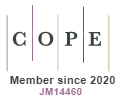Narratives of a teacher at the end of her career: education in the face of the pandemic
DOI:
https://doi.org/10.5585/dialogia.n36.17883Keywords:
E-learning, Continuing education, Digital technologiesAbstract
With a view to valuing the teaching knowledge of a teacher at the end of her career, she reflected on teacher training and the use of digital technologies in the teaching and learning process, through e-learning, at a time when the country is experiencing a pandemic. caused by COVID-19. A qualitative research was carried out and, for data collection, a narrative interview was used with a teacher at the end of her career, who works at the Municipal Education Network of Brusque, (SC). For analysis, content analysis was used and as theoretical support, the contributions of Marcelo (2001), Vaillant and Marcelo (2012), Nóvoa (2009, 2019, 2020) and Pérez Gómez (2015). The results showed gaps in continuing education, as it is not enough to provide teachers with training, as well as to use technology for the teaching-learning process, since many students do not have access to the internet. It is becoming urgent to rethink the education, especially of children belonging to the less privileged classes.
Downloads
References
ANDRÉ, Marli. O que é um estudo de caso qualitativo em educação? Revista da FAEEBA – Educação e Contemporaneidade, Salvador, v. 22, n. 40, p. 95-103, 2013.
BARDIN. Laurence. Análise de conteúdo. Tradução: Luís Antero Reto; Augusto Pinheiro. São Paulo: Edições 70, 2016.
BRASIL. Diário Oficial da União. Mensagem nº 93. 2020a. Disponível em: https://www.in.gov.br/en/web/dou/-/despacho-do-presidente-da-republica-248641738. Acesso em: 21 maio. 2020.
BRASIL. Diário Oficial da União. Portaria nº 343, de 17 de março de 2020. 2020b. Disponível em: https://abmes.org.br/arquivos/legislacoes/Portaria-mec-343-2020-03-17. Acesso em: 21 maio. 2020.
BOGDAN, Robert C.; BIKLEN, Sari Knopp. Investigação qualitativa em educação: uma introdução a teoria aos métodos. Porto: Porto Ed, 1994.
BORBA, Marcelo de Carvalho. OECHSLER, Vanessa. Tecnologias na educação: o uso dos vídeos em sala de aula. R. bras. Ens. Ci. Tecnol., Ponta Grossa, v. 11, n. 2, p. 391-423, mai./ago. 2018.
MARCELO, Carlos. Aprender a Enseñar para la Sociedad del Conocimiento. Revista Complutense de Educación, vol. 12 n. 2, p. 531-593, 2001.
NÓVOA, António. Os professores e sua formação num tempo de metamorfose da escola. Educação & Realidade, Porto Alegre, vol.44 n.3, p. 1-15, 2019. Disponível em: https://www.scielo.br/scielo.php?script=sci_arttext&pid=S2175-62362019000300402. Acesso em 20 maio. 2020.
NÓVOA, António. Professores: imagens do futuro presente. Lisboa: Educa, 2009.
NÓVOA, António. Webconferência - Formação de professores em tempo de pandemia. 2020. Disponível em: https://www.youtube.com/watch?reload=9&v=ef3YQcbERiM Acesso em: 20 jul. 2020.
PRADO, Guilherme do Val Toledo. SOLIGO, Rosaura. Memorial de Formação – quando as memórias narram a história da formação. In: PRADO, Guilherme do Val Toledo. SOLIGO, Rosaura (Orgs.). Porque escrever é fazer história: revelações, subversões, superações. Campinas, SP: Editora Alínea, 2007.
PERÉZ GÓMEZ, Ángel I. Educação na era digital: a escola educativa. Tradução: Marisa Guedes; revisão técnica: Bartira Costa Neves. Porto Alegre: Penso, 2015.
VAILLANT, Denise. MARCELO, Carlos. Ensinando a ensinar: as quatro etapas de uma aprendizagem. Curitiba: Ed. UTFPR, 2012.
Downloads
Published
How to Cite
Issue
Section
License
Copyright (c) 2020 Dialogia

This work is licensed under a Creative Commons Attribution-NonCommercial-ShareAlike 4.0 International License.
- Abstract 740
- PDF (Português (Brasil)) 704






